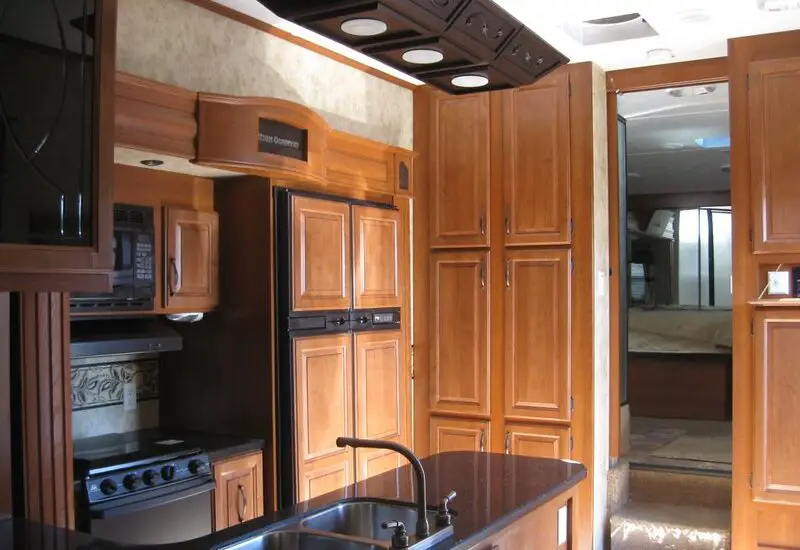Is your Everchill RV refrigerator compressor not working? Rest assured, this comprehensive guide will walk you through each step needed to diagnose and resolve the issue.

Table of Contents
Identify the Symptoms
Before diving into troubleshooting, it’s crucial to know what signs indicate a malfunctioning compressor. Symptoms can vary but commonly include:
Refrigerator not cooling: The most apparent sign is when your refrigerator is not cooling as it should.
Unusual noises: If you hear strange sounds coming from the compressor area, this can signal an issue.
Compressor not starting: If you notice that the compressor is not starting at all, it is a definite red flag.
Everchill RV Refrigerator Compressor Not Working Troubleshooting Steps
Follow the steps below to troubleshoot your Everchill RV refrigerator compressor that is not working:
Check the Power Supply
The power supply is often the first and easiest thing to check, and it’s surprising how often issues can be resolved at this step. Here’s how to conduct a thorough power supply check:
Check the RV’s Connection to Power: Ensure that your RV is connected to a reliable power source. This may seem basic, but it’s crucial. Sometimes power connections get loose, or breakers trip.
Verify the Refrigerator’s Plug: Locate where your Everchill refrigerator is plugged into an electrical outlet within your RV. Make sure the plug is securely in the outlet.
Inspect the Power Cord: Sometimes, the issue could be a faulty power cord. Check for visible signs of wear and tear or damage like frayed wires. If you notice any, the power cord may need to be replaced.
Inspect the Electrical Components
Once you’re certain that power isn’t the issue, the next step is to inspect the internal electrical components. This involves a bit more technical work, but with caution, you can do it safely.
Turn Off and Unplug the refrigerator: For safety reasons, make sure the refrigerator is turned off and unplugged from its power source before you begin.
Open the Back Panel: Generally, there’s a back panel protecting the compressor and electrical parts. This panel is usually secured with screws. Use a screwdriver to open it.
Locate the Compressor and Wires: The compressor is usually a cylindrical component. Around it, you’ll see a bunch of wires.
Check for Loose or Disconnected Wires: Make sure all wires are securely connected to their respective terminals. Loose or disconnected wires can be the root of your problems.
Check for Damaged Wires: Inspect the wires for any visible damage like cuts or burns. If you find damaged wires, they will need to be replaced.
Check out these other articles…
Refrigerator Compressor Just Hums: Easy Steps to Fix It
Refrigerator Compressor Keeps Clicking: 4 Simple Fixes
Refrigerator Compressor Keeps Clicking On and Off: Fixed
Refrigerator Compressor Leaking Water: Fixed in 6 Easy Steps
Causes of Refrigerator Compressor Overheating: Easy Guide
Test the Compressor
Testing the compressor will help you understand whether it is functioning as it should. You’ll need a multimeter for this. A multimeter is a device used to measure electrical properties like voltage, current, and resistance.
Locate the Compressor Terminals: On the compressor, you’ll find terminals that are typically labeled and connected to wires.
Set the Multimeter: Turn on your multimeter and set it to measure resistance (Ohms).
Measure Resistance: Touch the multimeter’s probes to the terminals. A reading should appear on the multimeter. If the reading shows infinite resistance or zero, there’s likely a problem with the compressor.
Consult the Manufacturer’s Specifications: Each compressor has specific resistance ranges that are considered normal. Consult your Everchill refrigerator manual to compare your readings.
Determine the Next Steps: If the resistance readings are out of range, the compressor is likely defective and might need replacement. If the readings are within range, the problem may lie elsewhere and professional help is advised.
Seek Professional Assistance
If after performing all these tests and checks your Everchill RV refrigerator compressor is still not working, it’s time to consult a certified technician. These experts can provide more advanced diagnostics and offer the appropriate solutions for repair or replacement.
